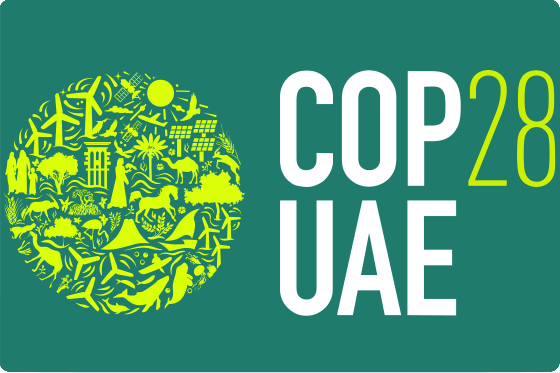
As many of us were recovering from eating too much food on Thanksgiving, delegations from all over the world were traveling to the United Arab Emirates to attend COP 28 – this year’s United Nations Climate Change conference. COP 28 was an opportunity to make progress towards global climate goals – so how did it go?
Fossil Fuel Influence
The 28th COP meeting had its fair share of controversy surrounding the fossil fuel industry. The COP president, a prominent Oil Executive named Sultan Al Jaber, caused a stir in a video call before the event by stating that there was “no science” indicating fossil fuels needed to be phased out for global warming to be restricted1. Following public outcry, Al Jaber clarified during an emergency press conference held the next day that he believed fossil fuel phase outs were “inevitable and in fact essential” to achieve climate goals2.
Then on the opening day of the event, the Brazil President, Lula de Ignacio de la Silva, announced his country’s climate-positive progress, including the sharp decline in Amazon deforestation3. However, on that very same day, Brazil announced their intentions to align with OPEC, the oil cartel, casting a disingenuous light on their messaging4.
One of the biggest delegations at COP 28 didn’t represent a country, but oil and gas interests. According to the environmental group Kick Big Polluters Out (KBPO), at least 2,456 fossil fuel lobbyists had COP 28 access. This group is outnumbered only by the Brazil delegation, which totaled 3,081, and the host, the United Arab Emirates, which had 4,409. Such a volume of oil and gas representation looks even worse when comparing it to the number of indigenous representatives, 316, and the total delegation of the ten most climate vulnerable countries listed on the Notre Dame climate vulnerability index, which was 1,509.
Fossil Fuels Language Makes an Appearance
The United Arab Emirates’ oil influence loomed large over policy tasks. Mirroring Sultan Al Jaber’s disputed comments, certain countries such as Saudi Arabia lobbied hard to remove any language related to toning down or phasing out the use of fossil fuels. The initial draft of the COP 28 policy planning document, or worldwide agreement related to climate change mitigation, did not include any language about fossil fuels, much to the justified outrage of nations like the Marshall Islands, who are in danger of being eradicated due to rising sea levels5.
A breakthrough occurred days after the summit was supposed to end. The final climate plan agreed upon included language that called for “transitioning away” from fossil fuels, the first statement of its kind. The debate surrounding and insistence for language calling for fossil fuel reductions was ultimately a positive feature of the event: the very severity of the argument surrounding these words is a testament to their significance. The symbolic victory around fossil fuels is not the cherry-on-top of the meeting, but the main course of the event. Other climate objectives have aways to go. For instance, the gaping difference between pledged climate impact relief at COP 28 (around $700 million) and estimated required funding ($400 billion)6.
Mississippi Representation
Although the official members of COP 28 are representatives of national governments, many organizations with interest in climate send representatives. There was one main representative from Mississippi. Errick Simmons, the Mayor of Greenville, MS, was a part of a coalition representing the Mississippi River Cities and Towns Initiative. He made appearances on a number of panels, including one on developments related to natural infrastructure, resilience, and climate investments, one on utilizing the youth for climate movements, and one on the importance of the Mississippi River for transportation, among others7.
Is Mississippi Affected?
Given the sheer diversity of representation and viewpoints international agreements and statements like the COP 28 document need to account for, the final language is vague enough for someone to argue that almost all clauses or almost none of the clauses could apply to Mississippi. One token example of this is section 53, which acknowledges that “that long-term planning for and accelerated implementation of adaptation” to “climate change and associated risks” are necessary to climate change impact mitigation8, a statement relevant to the Biden’s goal of increasing funding for climate resilience discussed in a previous National Sea Grant Law Center blog post entitled How have Recent Federal Appropriations affected Grant Allocations? Where does Grant Money Go? Using the NOAA Climate Resilience Grants as a Case Study.
Conclusion
Despite the oil and gas industry’s looming presence over the event, COP 28 concluded with the release of an agreement featuring the harshest language ever directed towards those interests, a symbolic win for climate interests. Mississippi’s place in climate proceedings is hard to extract, but it will certainly feel the impact of rising temperatures as they come.
1 David Gelles et al., It’s Big Oil vs. Science at the U.N. Climate Summit, The New York Times, Dec. 5, 2023.
2 Lisa Friedman, Climate Summit Leader Tries to Calm Uproar Over a Remark on Fossil Fuels, The New York Times, Dec. 4, 2023.
3 Jonathan Watts, Lula’s bid to style himself climate leader at Cop28 undermined by Opec move, The Guardian, Dec. 2, 2023.
4 Brazil to join OPEC+ in 2024, seeks oil market stability: minister.
5 Lisa Friedman, Countries Most at Risk Call Proposed Climate Agreement a ‘Death Warrant,’ The New York Times, Dec. 11, 2023.
6 $700m pledged to loss and damage fund at Cop28 covers less than 0.2% needed | Cop28 | The Guardian.
7 Mississippi River Cities and Towns Initiative.
8 United Nations Framework Convention on Climate Change, Outcome of the first global stocktake (United Nations) (2023).











